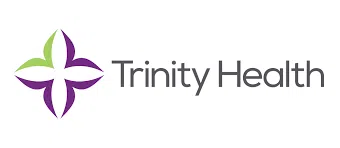Men can’t turn on the TV or listen to a podcast these days without a company promising more energy, a better marriage, and much more if you just buy their testosterone-boosting supplement. But it’s rarely that simple.
Joshua Cummings, PA-C, Trinity Health Medical Group, Primary Care – Spring Lake, shares what you need to know about testosterone, the symptoms that may indicate a problem, and what you should consider before spending money on any over-the-counter products.
What is testosterone?
Joshua Cummings, PA-C: Testosterone is the primary male sex hormone. It attaches to special parts of the body called androgen receptors. Testosterone helps with many important body functions, like developing male features during puberty, libido, and sperm production. It also helps build muscle, keeps bones strong, and stabilizes mood.
What is a healthy level of testosterone and how does a person go about finding out their levels?
JC: In adult males, a healthy level of testosterone in the blood is usually between 300 and 900 ng/dL, but this can vary a little depending on the medical clinic. The American Urological Association says that levels below 300 ng/dL may show a testosterone problem, if the person also has other signs of it.
To check testosterone levels, a blood test should be done, usually in the early morning between 7 and 10 a.m. The test should be repeated on a different day to make sure the low level is real and not just a one-time result.
What are some of the signs that a person may have low testosterone? What about high testosterone?
JC: Low testosterone (hypogonadism) may present with:
- Decreased libido and erectile dysfunction
- Low energy, fatigue, and mood changes (including depression or irritability)
- Loss of muscle mass, increased body fat
- Decreased bone mineral density
- Infertility
- Physical findings such as enlarged breasts (gynecomastia), decreased body/facial hair, and testicular atrophy
High testosterone (hypergonadism) may present with:
- Acne, oily skin
- Mood swings, aggression
- Increased lean muscle mass
- Polycythemia (elevated red blood cells)
- Enlarged breasts
- Infertility
There are a lot of companies marketing testosterone-boosting supplements. They promise customers more energy, a higher sex drive, etc. What should people consider before buying these products?
JC: People should know that most testosterone-boosting supplements you can buy without a prescription don’t have strong scientific proof that they actually work. Most of them don’t make a real difference in testosterone levels and might even have harmful or unknown ingredients.
Important things to think about:
- Scientific proof: Few ingredients are supported by clinical trials.
- Rules and safety checks: These products aren’t checked by the FDA like prescription drugs are.
- Health risks: Some supplements can be dangerous for your heart, kidneys, or liver—especially if you take other medicines or have health problems.
People don’t talk about high testosterone nearly as much as they talk about ‘Low T’. What are the risks associated with high testosterone and what treatments are available?
JC: Having too much testosterone—especially from things like testosterone replacement therapy (TRT) or steroids—can be risky. Possible problems include:
- Too many red blood cells, which can lead to blood clots
- Heart problems, like heart attacks or strokes
- Worsening sleep apnea and mood swings
- Acne and breast growth in men (gynecomastia)
- Infertility
- An enlarged prostate, which can cause urination issues
How it’s treated depends on the cause. Options include:
- Stopping or changing the testosterone treatment
- Medicine to lower testosterone if a tumor is causing high levels
- Referral to an endocrinologist or urologist
Who is the best person to talk to about testosterone-related questions?
JC: Your primary care provider is usually the first person you should talk to if you’re worried about low or high testosterone. Based on your symptoms and test results, they might send you to a specialist, such as:
- An endocrinologist if the problem is related to hormone glands like the pituitary or other hormone issues.
- A urologist if you’re thinking about testosterone treatment, or have problems like infertility, erectile dysfunction, or prostate issues
If you need to find a primary care provider, please visit Find a Doctor | Trinity Health Michigan.

Comments